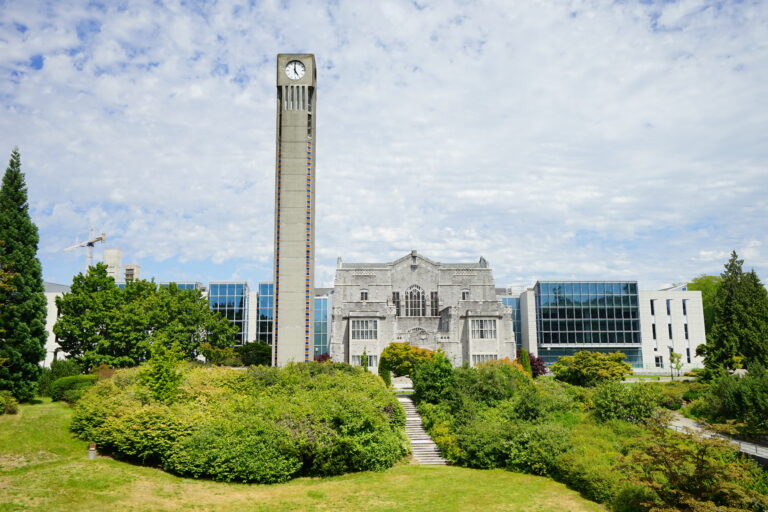This is the story of how Social Justice Activists turned the [Canadian] Law Society into the thought police. It’s a polarizing story, as all stories are these day, about a skirmish between warring factions of lawyers and paralegals that convulsed through our profession over the last couple of years. It’s a story about a handful of ordinary lawyers and paralegals, mostly sole or small firm practitioners, who risked careers, reputations, friendships and more to stand up against the progressive juggernaut, because they believed that their professional regulator had no right to tell its members what they are required to think and believe in order to practice law.
All by itself, it’s a fascinating tale (as much as one can be fascinated by lawyers). But what I really want to share with you in my short 15 minutes is how this story is a microcosm of a much broader culture war that is being waged across Western society. I’d like to share some lessons learned, and some hope and encouragement that pushback efforts like ours can, and indeed must, succeed.
First, let me get you up to speed with a quick backgrounder: Several years ago, on the basis of a deeply flawed report that was riddled with methodological deficiencies and motivated reasoning, the Law Society decided it had found what it went looking for—systemic racism in the profession. This notwithstanding an earlier report conducted 15 years ago, which found no such thing.
In December of 2016, “Benchers” (the governors of the law society) unanimously passed 13 recommendations designed to address this systemic racism (the unanimity was achieved in no small part through intimidation and bullying, as we later learned). Among the recommendations were measures designed to ensure “better representation of racialized licensees, in proportion to the representation in the Ontario population, in the professions, in all legal workplaces and at all levels of seniority.” After going on about how important these measures were to addressing racism, they then immediately voted to extend those same recommendations to all “equity-seeking groups”. These groups were not defined or limited in any way, nor was there any comparable report, offered even as a pretense, to indicate why this was necessary. Presumably the recommendations, which sound a lot like quotas, would apply to women, LGBTQ, those with physical or mental challenges, or whoever else has had the foresight to organize themselves. By that very action, the law society confirmed, to me at least, that this exercise was not about addressing racism at all, but about requiring lawyers and paralegals to swear allegiance to progressive values as a condition of practicing law.
In order to get lawyers on board with this “accelerated culture shift,” as they called it, it was necessary to moderate their thinking. To that end, a mandatory Statement of Principles was part of the package to which each lawyer and paralegal needed to sign on. Now this statement was ostensibly very flexible—you could choose one of two templates, or even use your own words—as long as you said (in your own words!) that your personal principles were to promote equality (meaning equity), diversity, and inclusion (as defined by the law society) in your practice, in your personal life, and even in your retirement. These would prevail over any conflicting principles you might personally hold, naturally, because if you didn’t indicate on your annual report that you had complied, there would be “progressive discipline,” presumably through to the suspension of your license to practice law. You could either sign the requisite statement without believing it and be a hypocrite, or you could refuse to sign it and risk your career.
Requiring people to swear, in effect, a loyalty pledge to a particular political view is unsettling at best, and totalitarian at worst. But that’s not how the activists see it. And for most people who aren’t spending their time watching the culture war unfold, spotting patterns, witnessing people being canceled for wrongspeak, they hear those nice words “equality,” diversity, inclusion and wonder how anyone could be opposed. When in doubt, or until the consequences hit them personally, people tend to side with “Social Justice” because it just sounds nice.
But those nice-sounding words demand more of us than it appears at first blush.
Look at the word “Equality,” for instance. The definition on the Law Society’s own webpage confirms that they do not mean equality of opportunity or that each individual is equal before and under the law. No. They mean “substantive equality,” or equality of outcome—also called “equity.” Equality of outcome means that notions of merit, achievement, hard work and talent are disparaged in order to ensure that everyone ends up in the same place in society. This is inimical to the fundamental freedoms on which Western society is based. As Milton Friedman is quoted as saying, “A society that puts equality before freedom will get neither. A society that puts freedom before equality will get a high degree of both.”
The word “inclusion” is also fraught, as many radical feminists are finding out now that male-bodied individuals self-identifying as “women” are increasingly entering their sporting events, prisons and changerooms. If the Law Society had had its way, no lawyer would be able to take a case arguing against this sort of “inclusion.” So, there were certainly reasonable bases to contest the so-called values to which we were demanded to pay fealty. But the important question isn’t what the values are. Most people do think that diversity—of all kinds—is a good thing, myself included. The important question is whether an arm of the state should be able to decide your values at all. It was remarkable how few lawyers saw this as a concern.
But most busy lawyers weren’t even aware of this new requirement, even as the law society started to roll it out in the fall of 2017. Professor Bruce Pardy wrote an article in the National Post that October, likening the Law Society to North Korea. That kickstarted a small pushback effort. After reading his article, I spoke up at a bar association meeting London, Ontario, and ended up leading a small group of concerned lawyers as we launched a website and took out ads to inform the profession about the Statement of Principles (or, the SOP). We called ourselves the StopSOP Team, and brought aboard a few others who reached out to us, or who were writing on the subject, including Bruce. We put a list of supporters up on the website to assure other concerned lawyers and paralegals that they weren’t alone and to encourage them to refuse to comply with the Law Society’s edict. The list grew very slowly, with only about 350 people initially prepared to share their names publicly. On another front, a lawsuit was started by Professor Ryan Alford to challenge the Law Society in court.
Despite these efforts, more than 97% of lawyers and paralegals “checked the box” on their annual reports in the spring of 2018, indicating that they had prepared a SOP as required. Many told StopSOP organizers that felt they had no choice and were afraid to rock the boat. Clearly our little list of opposing lawyers wasn’t going to sway the Law Society.
With the next bencher election about a year out, the StopSOP team decided to run a slate of candidates who would endeavour to repeal the SOP. The candidates who came forward covered the entire political spectrum, sharing deep concern about this foray by the law society into compelled speech and thought. We collected donations from supporters and held a workshop to bring people together as we built our slate. Using well-timed articles in Quillette magazine, the National Post, and other media, and an organized and educational email campaign, the team worked tirelessly to get their candidates elected.
On May 1st, 2019, the election results were released. Every single one of StopSOP’s 22 lawyers was elected with top votes. Nineteen incumbents lost their seats, and some weren’t too happy about it. When given the chance to express their disapproval of the SOP privately at the “ballot box,” many lawyers and paralegals did just that—roughly 15 times as many people voted for us as were prepared to publicly indicate their support on the website. Countless people wrote to us afterward to thank our team and express relief that they could continue practicing law. To say this was an existential issue for some in the profession is not overstating the case.
So where did the impetus for imposing a compelled Statement of Principles on the legal profession come from anyway? My working theory is that it stems from the increasingly widespread teaching of Critical Theory in universities over the last few decades. Critical Theory is essentially the idea that all human interaction and discourse must be filtered through a power lens in order to rectify historical wrongs. It’s a zero-sum game where identity groups are split into competing teams of oppressors and oppressed. One group is assigned virtue, and another unearned privilege, individual circumstances be damned. It has managed to infiltrate our society by appearing in benign and apparently well-meaning forms—the so-called “right side of history” (although its mask is starting to slip), but its intention is to challenge, upend, and perhaps even destroy each institution in its sights. It is ushered in by moral busybodies (often called “Social Justice Warriors”) who discourage dissent by employing the weapons of shame, mobbing, and cancelling. Like a virus that escaped a social studies lab, it has rapidly replicated and infected much of Western society, causing a great malaise that can’t have escaped anyone’s notice at this point.
In an article written 20 years ago in the Boston College Law Review about the offshoot, Critical Race Theory, which got its start in US law schools in the 1980s, Jeffrey Pyle wrote (pdf) that Critical Race Theorists attack the very foundations of the classical liberal legal order, including the notion that every person is equal under and before the law, legal reasoning, Enlightenment rationalism and neutral principles of constitutional law. These liberal values, they allege, are mere social constructs calculated to legitimate white supremacy. The rule of law, according to Critical Race Theorists, is a false promise of principled government.
One scholar, James Lindsay, has called Critical Theory a Trojan Horse. Osgoode Hall, the home of the Law Society of Ontario (formerly of Upper Canada, but Critical Theory may have wrought that change as well), opened its doors to welcome in the Trojan Horse, but they are not the only ones. This thinking is spreading rapidly, through universities, professional organizations, schools, governments and business. Even churches and clubs are not immune.
In a world where norms and values have eroded, leaving a great void, there is a battle for ideas being waged, and the critical theorists and their fellow travellers have figured out a way of ensuring that only their ideas prevail.
As the recently deceased conservative philosopher, Sir Roger Scruton, wrote not long ago: “We are entering a dangerous social condition in which the direct expression of opinions that conflict—or merely seem to conflict—with a narrow set of orthodoxies is instantly punished by a band of self-appointed vigilantes.”
We experienced that first-hand. When a compelled Statement of Principles is tied to an initiative to promote the new religion of Equality, Diversity and Inclusion, the consequences of failing to fall in line mean, to the authoritarians demanding our compliance, that we must be racists and bigots. That could be the only possible explanation, as their tweets during the campaign so amply proved. Most people don’t relish being called a racist or a bigot, so activists during the campaign and beyond hurled these epithets at the StopSOP team to shut us down.
Someone drew cartoons portraying opponents of the SOP as pointy-eared goblins, much as Jews were portrayed in 1930’s German propaganda to vilify them. There was a steady stream of disparaging comments about our slate being filled with “old white men,” while those on our team who were women, young, or from minority backgrounds were dismissed as tokens. Very rarely, if at all, did our opponents engage on the merits of our arguments—they just expressed vitriol and anger that anyone would dare oppose them. But this was right out of the playbook. In Saul Alinsky’s Rules For Radicals, he instructs activists never to debate the topic, but rather to attack the person.
Despite all the bullying and name-calling, there was really nothing of substance on the other side. They didn’t have the facts—we did. They didn’t have the arguments—we did. They didn’t have any way to convince people of the merits of their position except through pressure to conform. And when we didn’t conform, they were completely taken aback by our commitment and organization. Yes, we were called some names, but we took the high road and didn’t engage in the mudslinging, making them look like fools. What happens when you stand up to them? Nothing. The world didn’t end.
We found our courage, and we discovered that courage is contagious. Sometimes it just takes one or two to stand up and say “this is wrong” for others to find their voices too. And we knew that many others who couldn’t personally take a stand were behind us, and counting on us. One comment on a National Post article about the election read: “Most Canadians will never realise how important this campaign was to our basic democracy and liberty. Once the lawyers were subsumed into the equality and diversity totalitarian enterprise, the rest of us were doomed.”
I’m here to tell you that there is something remarkably freeing about standing up for something you believe in, and withstanding the slings and arrows. Many on our team have told me that they’ve never felt so alive. We built a beautiful community of individualists, each bringing their own diverse perspective to the table, and each respected for that. We came together on important issues, and although I’m no longer managing a slate of candidates, I have watched our newly elected benchers grow in their positions, develop as leaders, work through problems and conflicts, and continue as friends and colleagues to restore some sanity back to the law society.
They say the center doesn’t hold—all this activism and conflict hollows out the middle as people tire of being involved, especially when they are personally under attack. That’s part of the activist playbook too—but the center has to hold. If you know what you’re dealing with, you can prepare yourself. Ordinary citizens, and especially thinkers and leaders like yourselves, need to step up before this country becomes toxic and unlivable, with people speaking their opinions only in hushed whispers around their kitchen tables and everyone forced to conform with the prevailing orthodoxy.
I believe 2020 will be the year that the balance begins to shift, when we stop merely tweeting about all the craziness, and when sensible men and women who value our free and liberal society roll up their sleeves and get to work. They can’t cancel all of us.
by Lisa Bildy, from a speech given Jan 2020 to Civitas








